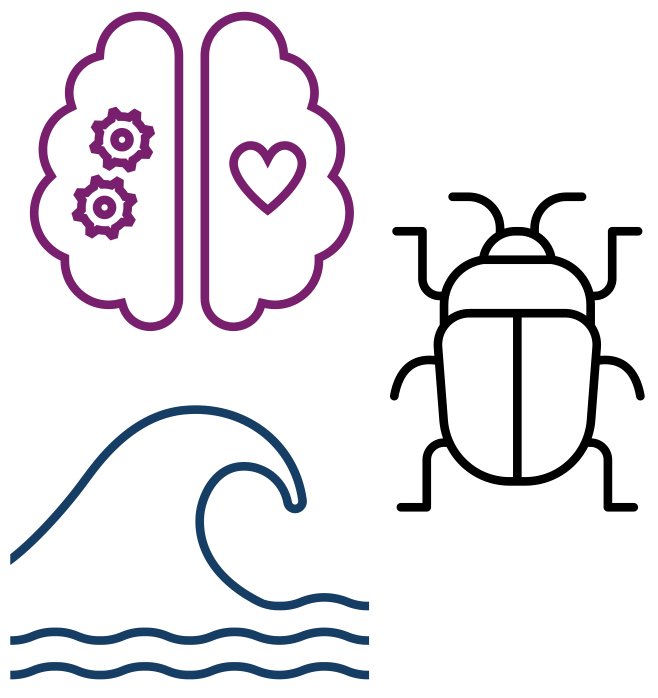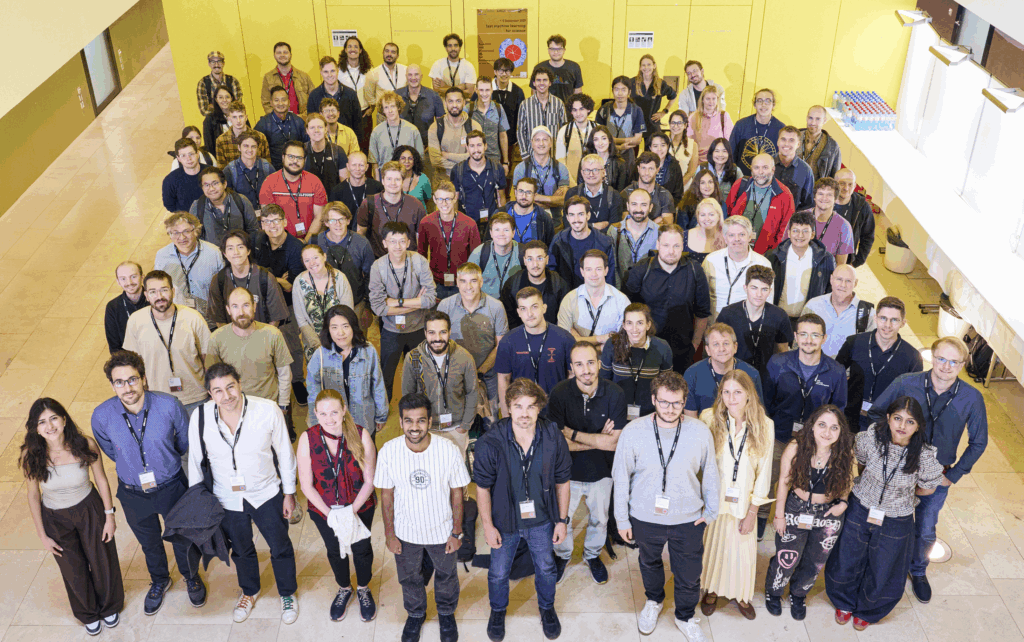
Accelerated AI Algorithms for Data-Driven Discovery
The National Science Foundation (NSF), under the Harnessing the Data Revolution (HDR) program, is providing funding to establish the Accelerated AI Algorithms for Data-Driven Discovery (A3D3) Institute, a multi-disciplinary and geographically distributed entity with the primary mission to lead a paradigm shift in the application of real-time artificial intelligence (AI) at scale to advance scientific knowledge and accelerate discovery.
Our Research
A3D3 aims to construct the knowledge essential for real-time applications of artificial intelligence in three fields of science: high energy physics, multi-messenger astrophysics and systems neuroscience. The institute aims to develop customized AI solutions to process large datasets in real time, significantly enhancing the potential for discovery.
Hardware and Algorithm Co-development
Developing AI methods to encode non-lattice-structured data is one main challenge in current AI systems.
High Energy Physics
Build tools to process LHC collisions occurring 40 million times per second data in real-time using AI.
Systems Neuroscience
Discover the computations that brain-wide neural networks perform to process sensory and motor information during behavior by using high-throughput and low-latency AI algorithms to process.
Heterogenous systems
Study a mixture of hardware resources like CPU, GPU and FPGA required for ML science pipelines.
Multi-messenger Astrophysics
Process the data from telescopes, neutrino detectors, and gravitational-wave detectors to identify astronomical events corresponding to the most violent phenomena in the Cosmos.
Targeted systems
Develop common tools for deploying ML algorithms in dedicated science experiment systems implemented in FPGAs and ASICs.
Stay Involved
Find out what is
happening next in AI
Events
EST Timezone

Participate in the HDR ecosystem ML challenge

A3D3 team leads the first end-to-end Machine Learning-based, real-time search for Binary Black Holes
By: Erik KatsavounidisSeptember 26, 2025 A new, fully machine learning-based search method for binary black holes developed by members of the A3D3…
A3D3 Accelerates Real-Time AI for Scientific Discovery at FastML 2025
By: Abdelrahman ElabdSeptember 18, 2025 Zurich, Switzerland -The cutting edge of computing and instrumentation has enabled fields like high-energy…Newsletter
Stay up to date, join our newsletter!
Team
We lead the paradigm shift of AI
A3D3 aims to construct the knowledge essential for real-time applications of artificial intelligence in three fields of science: high energy physics, multi-messenger astrophysics and systems neuroscience. The institute aims to develop customized AI solutions to process large datasets in real time, significantly enhancing the potential for discovery.

